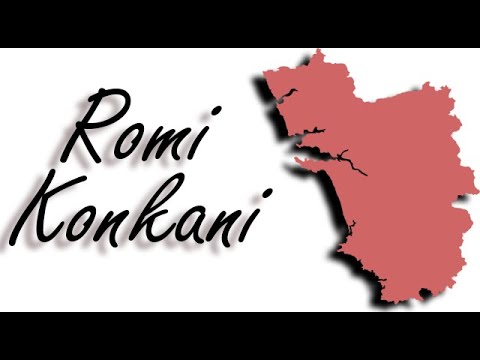This policy of overlooking one script, its users and centuries of cultural artifacts, is leading to cultural and religious isolation

For many weeks, well over four months, after the Romi Konkani campaign resurfaced in Goa, those who opposed the demand kept silent about their views on it. With the exception of the rare individual like Fr Mousinho Ataide, who joined in some WhatsApp debates and appeared as part of online discussions, nobody else who disagreed seemed eager to respond to the issue. At least, not until now.
In the past week, Jnanpith Award winner Damodar Mauzo stirred up a hornet's next by suggesting that the importance given to Marathi in Goa needs a re-look. MLA, lawyer and Konkani campaigner, Uday Bhembre, who was himself was a member of the Goa Legislative Assembly when the contentious Devanagari-alone Act was passed in 1987, has penned a lengthy article. He argues that the demand for Romi was based on "ignorance, misconceptions and misunderstandings".
Through many technical and lawyerly arguments, Bhembre advocates why a Devanagari-alone is justified in promoting Konkani (Sept 1, 2024). He takes us to the world of linguistics, history, literature, Indian languages and scripts, colonialism and its language policies, the Sahitya Akademi's language policies, court judgements, government commissions and post-Independence Indian language politics to make out his case for Devanagari Konkani. Or, rather, against Romi.
There are quite a few 'facts' in what Adv Bhembre advocates that can be debated. The Devanagari-alone OLA, 1987, was passed amidst secrecy. Till it went through, nobody outside of the Assembly knew which version of the Bill was being passed. It was changed many times and different versions were floating around. Nobody had stated, and almost everyone hadn't realised, that Konkani would be equated to mean a Devanagari-alone approach. Many fell for the argument that if the Konkani campaigners were divided, Marathi would get a way in (which it did anyway). The full implications of that policy became clear with time, especially when it was pushed in primary schools, with a considerable deal of force and compulsion.
Adv Bhembre is far from correct when he states: "None protested about the non-inclusion of the Roman script in the definition of Konkani after the passage of the Act and for many years thereafter." It was, in fact, protested within three to four hours of its passing. I was a Chief Sub-Editor at a local daily, when Churchill Alemao raised this issue there. Like the man or not, this is the reality. People like Fr Freddy J Da Costa, the late Gulab editor, were early to recognise the impact of one-script-alone politics in Goa.
Even the Jesuits, who took a pro-Devanagari policy initially, changed their stand and acknowledged their wrong reading of the situation, some years after pushing for Devanagari. They were active in prominent institutions like the Thomas Steven Konkani Kendr, which played a rather active role in the 1990s especially.
The arguments put forth by Adv Bhembre are interesting. Early Romi Konkani (starting in the sixteenth century) is excluded from being considered, because it was written by people of European origin. Likewise, the early Goan writing (for instance, Andre Vaz's grammar) is excluded. In this case, the reason is because "no such book was printed".
Romi Konkani is made far younger than it is (because earlier writing was marked by the "absence of local writers"). Malayalam-script Konkani is written off as irrelevant because "the Konkani speaking community took a conscious decision to use Nagari instead of Malalayam to write in Konkani" and "three Konkani writers from Kerala have received Sahitya Akademi awards". The Perso-Arabic script, which Konkani has been written in, is cancelled out of the story too because 'the publication of journals stopped about 50 years ago". Yet, Anup V Shanbhag of Sagara, Karnataka, has shared online images of current-day Konkani use in both these smaller scripts, which can be found by searching on Quora.com. Even assuming that all the points made are correct (for argument sake), the logic put forward by Bhembre completely misses the point.
Devanagari-versus-Romi is not the only conflict that India has seen, over script. After 1947, a Hindi-Urdu script was brought up, with all the Partition bitterness. Assamese and Bengali have been in a script row too. Punjabi's battle between Gurmukhi and Shahmukhi has religious and cultural overtones.
It is clear how the imposition of a Devanagari-alone policy has, and is, affecting the interests of Konkani users as a whole. It has marginalised Romi script users, who form a significant group, in the absence of official support and patronage (except after a lot of lobbying for TAG and DKA). By some sleight of hand, it has even affected Kannada script users, especially at the Sahitya Akademi level and in terms of sidelining of their literature.
This policy of overlooking one script, its users and centuries of cultural artifacts, is leading to cultural and religious isolation. Such approach fragments the Konkani community, instead of uniting it. There is a reduction in Goa's literary diversity. This has an impact on literature, and results in a suppression of local narratives. Keeping Romi out in the cold also disrupts our educational networks, as we have seen not long back.
If you delegitimise someone's script (and with it, the associated dialects) you're causing economic and job-market disadvantages for them. This can read to community resistance, as we now see, and a cultural backlash. Such policies without doubt are a threat to linguistic pluralism. It can definitely cause a loss of connections with the Diaspora.
Instead of building arguments of why a script needs to be discriminated against, those who want a Devanagari-alone approach need to understand what are the implications of their approach. To put it mildly, it is not helpful even to Konkani itself, let alone the majority of its users. What we need is not logic and carefully-crafted arguments. But a bit of generosity in placing themselves in the shoes of others.